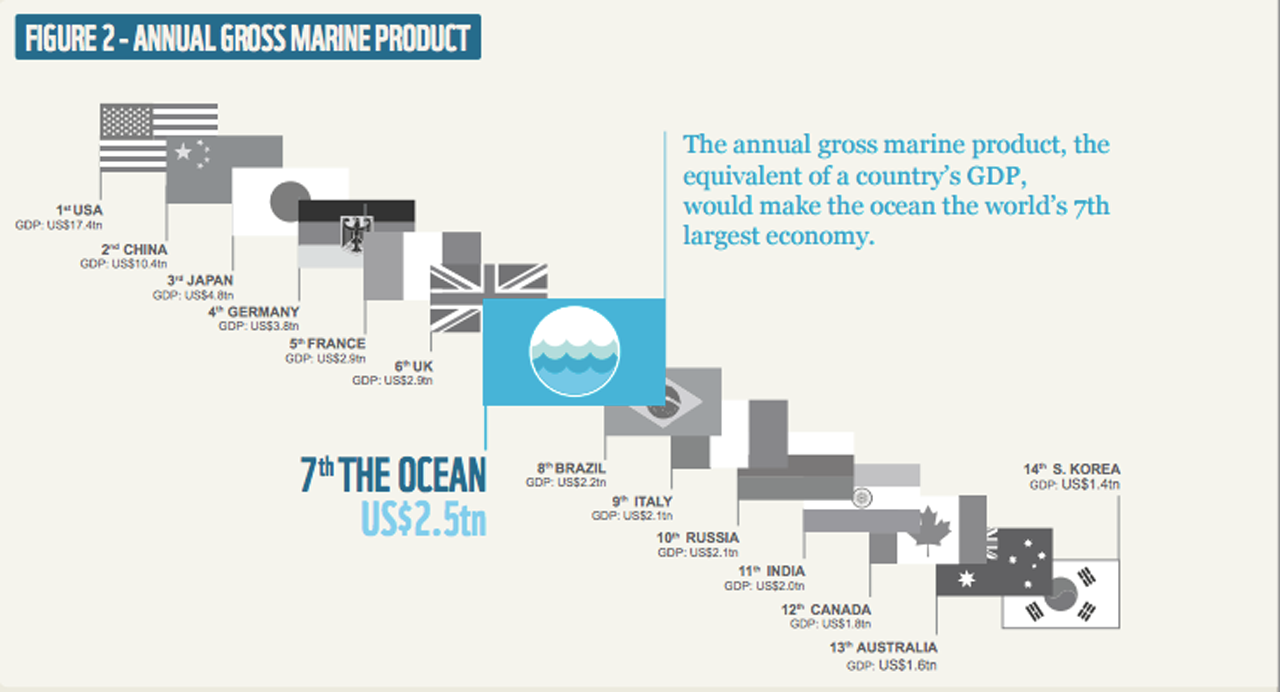The world’s oceans provide a lot of fish to eat. They contain mangrove forests and coral reefs that are essential for marine biodiversity. They offer lanes for shipping, and absorb 30% of manmade CO2 emissions that would otherwise produce more climate change. The oceans are essential for life, even if we tend to take them for granted.
Altogether, these benefits are worth a staggering $24 trillion–or $2.5 trillion a year–according to a new report from the World Wildlife Fund. “If the ocean were a country it would have the seventh largest economy in the world,” the report says. That means it would have more economic output than countries like Brazil, Russia, and Canada.

The numbers are derived from an analysis by the Boston Consulting Group (see its methodology here) and are based on seven types of services. These include the value of marine fisheries, mangroves, coral and seagrasses, shipping routes, coastline activities (excluding offshore drilling and mining), and carbon absorption. In each case, BCG took a previously published report or academic paper and extrapolated. WWF says the numbers, in fact, are likely an under-estimation.
The point of the study is to draw attention to what we lose when we mess with the marine environment–for example, through overfishing and the destruction of mangroves (which are disappearing three to five times faster than forest on terra firma). “The growth in human population means restoring the ocean economy and its core assets is a matter of global urgency, but the list of ocean systems under heavy pressure is already long and growing,” the report says. Two-thirds of the ocean’s value relies on a healthy environment–say, in maintaining benign pH levels, so coral reefs don’t burn from acidification.
WWF lays out eight actions it wants enacted, including a comprehensive international climate deal this December and more conservation zones in coastal and marine areas. These actions make economic sense–not just environmental sense.








